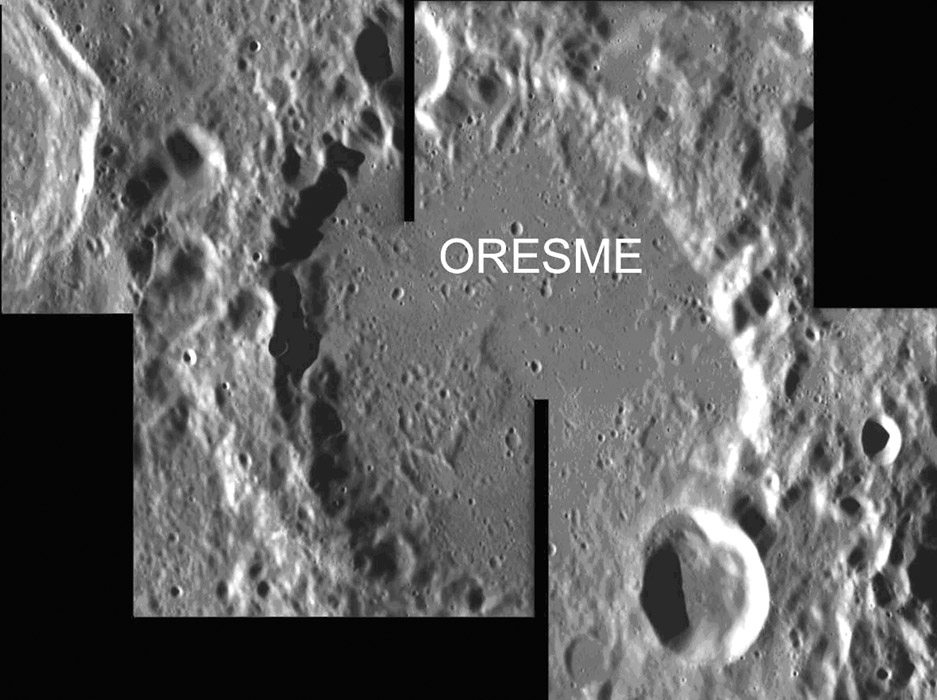
image by ESA/SPACE-X, Space Exploration Institute
The European Space Agency continues to dribble out occasional images from the SMART-1 lunar orbiter. It is unclear why this view of the 76 km wide farside crater Oresme was released. The crater is rather non-descript and adds little to our understanding of the Moon. Oresme is old enough that its formational wall terraces and central peak are gone. Its floor records multiple events. The heavily cratered peninsula that stretches from the left wall to the crater center is evidence for a previous floor that was nearly as heavily cratered as the surroundings. The smoother parts of the floor are a later ponding of lavas or fluidized ejecta that buried most of the older surface. Since then the smooth floor has been pitted by smaller craters - including a line of secondary pits possibly from the younger crater Oresme V whose rim is just visible at upper left. Oresme V is the center of a large thorium anomaly and its ejecta in Oreme is thorium rich. Debris from the rim-smashing Oresme K (lower right) has slumped onto the floor of Oresme. All of this is unremarkable, every crater has a history, and makes me wonder why an image of a more interesting feature was not released. Although SMART-1 was a very successful test of spacecraft technology, the haphazard (and limited) selection of released images suggests that the technology is more advanced than the understanding of public relations. I hope that the upcoming Indian and Chinese lunar mission planners will pursue rapid and extensive releases of many scientifically interesting images. Public funds support space exploration in all countries, and the public must have abundant evidence that their investments have paid high dividends in terms of science and pride.
Technical Details:
30 August, 2006. Advanced Moon micro-Imager Experiment (AMIE) camera on SMART-1 spacecraft, 110 m per pixel resolution.
Related Links:
Clementine Atlas plate 119.
This image was previously released!
COMMENTS?
Click on this icon File:PostIcon.jpg at the upper right to post a comment.



